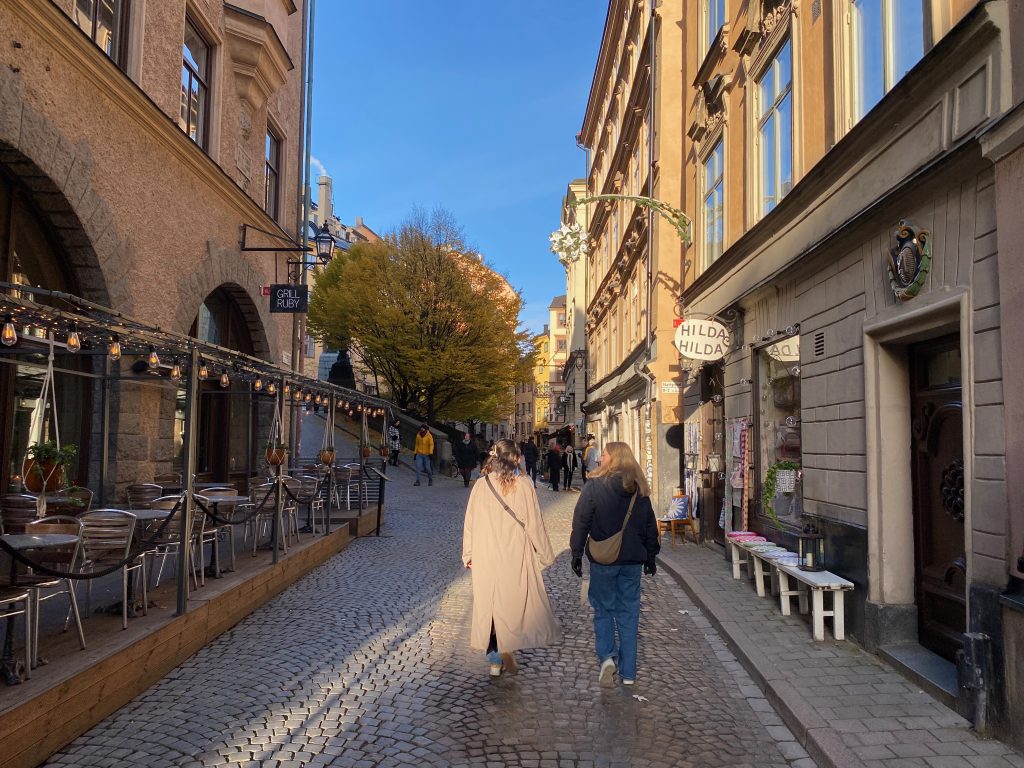
Dial-a-DA: the most common questions I’ve been asked about Global Health (Part 1)
Hej all! Over the past couple of months, I’ve had the pleasure of answering questions from many prospective and incoming Global Health students. During this process, I’ve realised that many people ask very similar questions, and share the same concerns. So, I’ve put together a list of some of the most common questions I’ve been asked, just in case anyone else might find these helpful! Let’s get started:
What does the work-life balance of studying Global Health look like?
In general, during the class portion of the year (September to January), you will have class on most days of the week. For some modules, this is 9am until 4pm in the classroom, but for others these are sporadic online classes, or even a lot of group work time. Because this is currently a 1-year masters programme, you will have more class hours and assignments than many of the other masters courses, because everything is condensed into a year. That’s to say – there is work that you will need to do outside of class hours, such as reading or assignments, as you would expect from a masters level degree. But, I never had a problem fitting in other parts of life around the course. In the autumn/winter term, I managed to fit in 3 different sports, lots of café and thrift store visits, a trip to Gothenburg and a trip to Copenhagen, and time with friends or visitors. Plus, once it gets to the thesis portion of the year (February to May), you’ll have a lot more free time.

Can I work whilst doing this degree?
Stockholm is not the cheapest city to live in, so I’m not surprised a lot of people asked this question! I think it also depends on what the job is. If there’s a lot of flexibility to complete work during hours that you choose (such as working as a Digital Ambassador!), then it’s definitely possible. However, I will say that you will need to be very organised, and stay up-to-date with assignments and class schedules. Whilst attendance for most classes during this degree is not mandatory, for some it is, and missing the class will result in having to complete extra assignments. Therefore, you need to be aware of when mandatory classes are, and flexible to be able to attend on those days.
Is it ok to be just out of my Bachelor’s degree?
Yes! I and several of my friends are in our early 20s, and were very worried that we wouldn’t have enough experience or wisdom to add to the class discussions. In reality, the range of ages and levels of experience in the class is amazing, as it leads to really productive and interesting class discussions. You will still have things to add to the discourse, so don’t worry!

What do most people want to do after the degree?
There are a lot of my classmates who are looking to work for a government, a non-governmental organisation, or a policy organisation after this course. Many people took this course in order to switch career focus into a more public or global health-based role. There are also others who have taken the course for interest and experience, but whom are planning to start or continue in clinical work (doctor, nurse, midwife, pharmacist). There are also a few of us who have taken this degree as an interim year before entering graduate studies, although this is mostly for entering PhD or MD programs in the US. Overall – a wide range! We’ve met individuals at the UN, at SIDA (Swedish Development agency), and at ECDC (European Centre for Disease Prevention and Control) who have all previously completed the MSc Global Health at KI, so there are plenty of choices available.
How do examinations work for the Global Health degree?
You will be examined on each module or course individually. This means no overall summative exam for all the material from the year. Instead, at the end of every module (lasting 2 to 4 weeks), you will sit an exam on that module, or complete an assignment. For this year (WHICH MAY CHANGE!), I sat exams for Introduction to Global Health, Research Methods, Infectious Diseases, and Maternal & Child Health. For Health Policy & Economics, and Non-communicable Diseases, we completed assignments for the final grade. In general, all the material you will need for examinations will have been taught during the course, so you only need to review the course materials you have been given before the exam. For me, this was the powerpoint slides from each individual class, and my own notes that I had taken. If you fail an exam, you will have 6 opportunities to retake it – however, only 2 or 3 of these may be within the same academic year. So, whilst technically it is completely fine to fail an exam a few times, don’t plan for too many as you may have to return to Sweden for your 4th or 5th retake. However – don’t stress about failing, as most of the exams were very straightforward and nothing to worry about!

Hopefully these have answered some of your questions – and if not, stay tuned for part 2! See you next time 🙂

Emily - Global Health
Hi, I’m Emily! I’m from the UK, the USA and Malaysia, and I’m studying the Master’s in Global Health this year. I’m a medical student in the UK, and hope to work either in Emergency Medicine or Women’s Health, as well as in health policy development and implementation. In my free time, I love playing sports, thrift shopping, hiking and the outdoors, and trying out new cafés (all of which I have heard Stockholm is perfect for!). I’m excited to travel around Scandinavia this year, start some new sports, and explore the shops and cafés in Södermalm.

0 comments